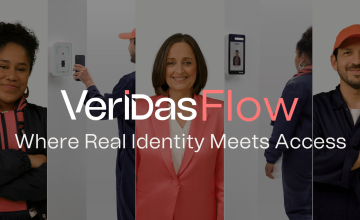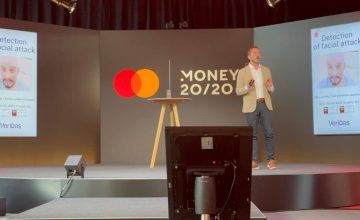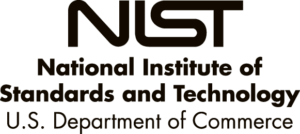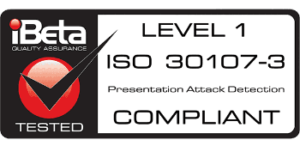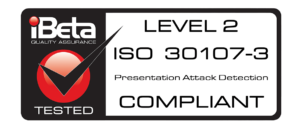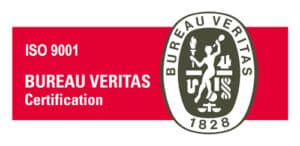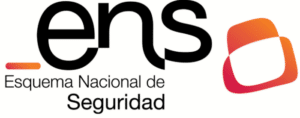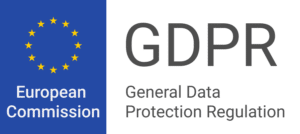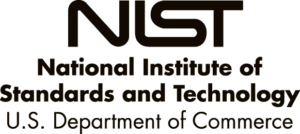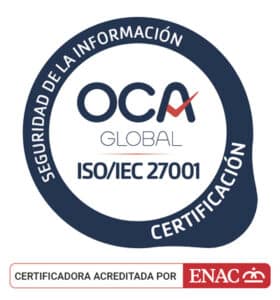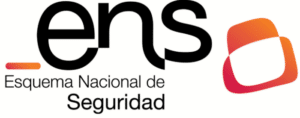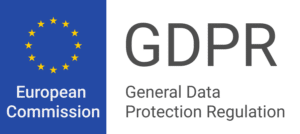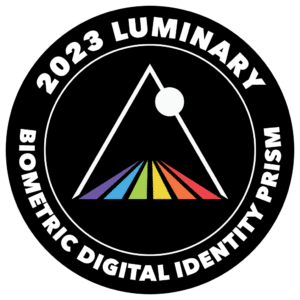When it comes to mitigating fraud risk, the customer base is not the only group to which strong identity verification measures should be applied
Nowadays, with such an abundance of social media, work, and banking accounts to keep track of, passwords are often forgotten or reused. While there are solutions that help you manage and store all of your credentials in one place, some experts believe that passwords are a thing of the past. What if there was an easier and more secure way to access your accounts?
To talk about how biometric technology can be harnessed to fight fraud and other identity-based threats, Cybernews interviewed Eduardo Azanza, the CEO and Co-Founder of Veridas – a company providing easy and secure identity verification.

How did Veridas originate?
Veridas has its roots in 2012 when das-Nano was founded. It started developing different AI-based products when in 2015, BBVA came to us, and we started working on a project to provide remote identity verification and biometric technologies. Two years later, Veridas was launched. Five years later, Veridas has become one of the main players in the identity and biometrics business. Over 100 customers around the world are using our IDproofing, face and voice biometrics, anti-fraud, and fully automated technologies.
What technology do you use to verify identities without using passwords or keys?
We develop three main technologies fully in-house: document verification, face biometrics, and voice biometrics. We verify identities the same way it has been done for thousands of years, but digitally. Biometrics is none other than recognizing a person for who he or she truly is. We have developed artificial intelligence engines that learn to do that same thing by analyzing a selfie or voice audio. And we link that to an official identity document, activating more than 30 AI-powered algorithms to determine whether it is authentic or not.
Behind that well-orchestrated process, all the user has to do is scan his or her document with their phone and take a selfie, which takes less than 15 seconds. Voice recognition also allows us to verify a person’s identity through a call in just 3 seconds and without the need for the user to repeat or say a specific sentence in any language.
In your opinion, which industries should be especially concerned with implementing biometric verification solutions?
Our solutions are applicable to every industry, given that any company these days needs to operate with its customers online. It is especially key for those who need a high security level to increase their online offerings like banking, Telcos, Insurance, or the Public Administration itself. But it can also bring a lot of new users to those industries where customer experience is vital such as mobility or hospitality.
Have you recently noticed any new techniques used by threat actors during the pandemic?
Fraudsters are always improving their methods. They always have and always will. The pandemic has boosted online activity, which has obviously come as an opportunity for identity fraudsters. We are continuously improving our technologies’ capacity to detect fraud or spoofing attacks. In regards to document verification, we have recently added replay attacks and photo replacements detection in more than 30 new countries, where we also analyze color authenticity or MRZ checksums. Our face biometric engine is wrong 1 in a million times when comparing two faces and has an iBeta Level 1 certification for liveness detection. This performance has been evaluated by the National Institute of Standards and Technology (NIST). Our biometric voice engine detects pre-recorded voices with an accuracy of 98.5%.
In summary, it is a race that will never end, but companies have to take into serious consideration the increase of online fraud and be sure that biometrics is one of the most advanced technologies to combat it.
What are some of the lesser-known identity security details that, if overlooked, can lead to serious problems for one’s company?
Companies usually adopt measures to prevent fraud attempts from the outside. However, oftentimes fraud is already happening within their own databases. At Veridas, we offer a fraud detection solution, das-FaceBond, that detects duplicate identities within a client’s database. That allows clients to see if a single client has opened several bank accounts with different fake identities.
What cybersecurity measures would you consider a must for organizations nowadays?
Organizations must have a strong identity solution to interact with their customers. Without it, they become exposed to fraud and are unable to increase their online offerings. Current methods such as passwords or SMS OTPs are vulnerable to hackers and are device-based rather than directly linked to the person’s identity.
Every business is based on a company-consumer relationship, and to be able to continue that relationship online, a secure and reliable biometric solution is key.
And for casual Internet users, what actions can average individuals take to protect their online identity?
I would suggest they fight for their rights. Their own right to exercise their real identity in the digital world. If I am not asked to spell out a password when I enter the gym, why should I do it to check my account balance?
In your opinion, where can we expect to see more biometric solutions be used in the near future?
Everywhere. It’s already happening in more developed industries like FinTech or Telco, but I think, eventually, every company can benefit from these solutions. The Public Sector as well is required to take action and provide more services to its citizens. In this sense, the European Union is already developing an Identity Wallet project that will set the path to follow.
Would you like to share what’s next for Veridas?
As always, we’ll continue to improve our technologies to offer a better service to our customers. We’re especially excited to exploit the voice biometrics market as it has just started to burst out, and it has a huge potential, also linked to face biometrics or the so-called multimodal biometrics. We have recently ranked 2nd engine in the world in the most prestigious international evaluation. We are also expanding our teams, with headquarters in Mexico and the US.




